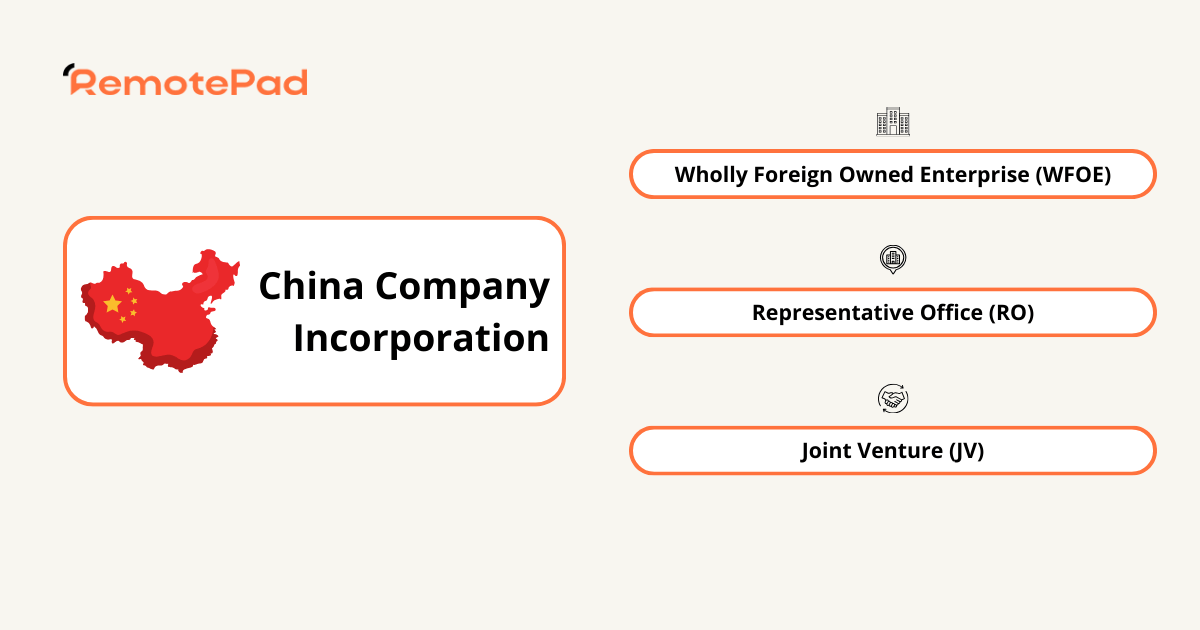Legal Considerations and Compliance
1. Regulatory Compliance
Compliance with Chinese legal frameworks, including foreign investment and corporate laws, is essential. For instance, China implemented the Foreign Investment Law in 2019, a unified law aiming to facilitate and protect foreign investments. Understanding such laws can be a cornerstone in ensuring smooth operations.
2. Environmental Regulations
Adhering to environmental regulations is mandatory and can build a positive brand image. Businesses engaged in manufacturing must be particularly vigilant, given the stringent ecological laws reinforced in recent years to combat pollution.
There are also plans to make compliance with environmental regulations a pivotal contributor to a positive Corporate Social Credit Score.
Location and Pre-approval
1. Choosing the Right Location
The choice of location can significantly influence your business success. Business hubs like Shanghai and Shenzhen offer a conducive atmosphere for startups and established businesses. For instance, in 2020, the Pudong district in Shanghai had a GDP of RMB 1,278.58 billion, reflecting the enormous economic activities in the region.
2. Pre-Approval Procedures
During pre-approval, your business name and scope must be clearly defined following the Chinese guidelines. This stage sets the foundational legal footprint of your enterprise in the Chinese landscape and ensuring meticulous detailing of the business scope can prevent future complications.
Documentation and Registration
1. Document Preparation
Preparing to acquire a business license involves curating a list of documents, including a feasibility report that should articulate your company’s potential market share.
2. Filing with the Government
After preparing the necessary documents, registering with the Administration for Market Regulation (AMR) is your next step. The AMR ensures the legitimacy of all enterprises operating in China, making this a pivotal step in the registration process.
Opening a Chinese Bank Account
1. Choosing a Bank
Selecting a bank requires careful consideration of various factors, including transaction ease, international and local transfer fees, and customer service efficiency. Leveraging a bank with a solid global presence can sometimes facilitate smoother business transactions.
2. Account Opening Procedures
The account opening procedure involves providing documents that adhere to the Chinese regulatory requirements. This step includes meticulous verification processes designed to maintain the economic integrity of the business landscape in China.
Hiring and HR Considerations
1. Recruitment
Recruiting the right talent is crucial in steering your business toward success. According to a LinkedIn report, over 77% of Chinese professionals consider the opportunity for career development a crucial factor in job selection. Hence, curating job roles with growth opportunities can be a magnet for the right talent.
2. Human Resource Management
Developing HR policies that align with Chinese cultural and regulatory landscapes is vital. Moreover, focusing on training programs rooted in understanding the fast-paced technological advancements that China is known for can be beneficial.
Operational Setup
1. Office Setup
Acquiring a space that resonates with your business vision while being budget-friendly is critical. In 2019, the average annual cost per square meter in Beijing was around 3,651 yuan, and budgeting should be done accordingly.
2. Licensing and Approvals
Securing operational licenses is mandatory and sometimes time-consuming, considering the stringent regulatory frameworks designed to maintain a balanced economic ecosystem in China.
Launch and Market Entry
1. Launch Strategy
A well-planned launch, taking cues from market research, and incorporating feedback from the soft launch can be a strategy for a successful entry. Leveraging digital marketing, considering that as of 2021, China had over 989 million internet users, can be a potent strategy.
2. Growth and Expansion
Post-launch, it is crucial to focus on growth through networking and business development strategies. Engaging with local business chambers and industry associations can provide networking opportunities to foster growth.
China Company Registration and Alternatives
Incorporating a company in China is a pathway paved with opportunities and challenges. With detailed research and taking cues from successful case studies while navigating the intricate legal frameworks, businesses can aspire to carve out a successful venture in the dynamically evolving Chinese business landscape. Continuous learning and adapting to the rapidly evolving market are the keys to sustained success in China.
We strongly recommend MS Advisory, Horizons, Globalization Partners, Bradford Jacobs, and China Company Registration for companies seeking provider support with China company registration.


